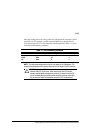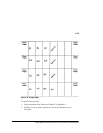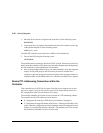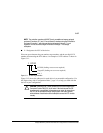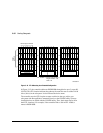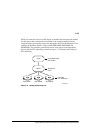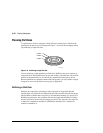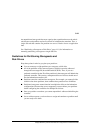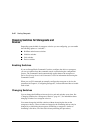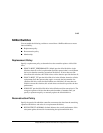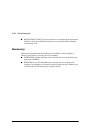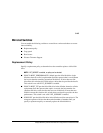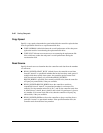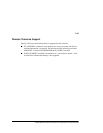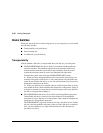
3–41
Compaq HSZ80 Array Controller ACS Version 8.3 Configuration and CLI Reference Guide
An unpartitioned storage unit has more capacity than a partition that uses the whole
unit because each partition requires five blocks of administrative metadata. Thus, a
single disk unit that contains one partition can store n-5 blocks of user or application
data.
See “Partitioning a Storageset or Disk Drive,” page 4–10, for information on
manually partitioning a storageset or single-disk unit.
Guidelines for Partitioning Storagesets and
Disk Drives
Keep these points in mind as you plan your partitions:
■ You can create up to eight partitions per storageset or disk drive.
■ All of the partitions on the same storageset or disk drive must be addressed
through the same target ID (host-addressable SCSI ID). Thus, if you set a
preferred controller for that ID, all the partitions in that storageset will inherit that
preferred controller. This ensures a transparent failover of devices should one of
the dual-redundant controllers fail.
■ Partitions cannot be combined into storagesets. For example, you cannot divide a
disk drive into three partitions, then combine those partitions into a RAIDset.
■ Partitioned storagesets cannot function in multiple bus failover dual-redundant
configurations. Because they are not supported, you must delete your partitions
before configuring the controllers for multiple bus failover.
■ Once you partition a container, you cannot unpartition it without reinitializing the
container.
■ Just as with storagesets, you do not have to assign unit numbers to partitions until
you are ready to use them.



